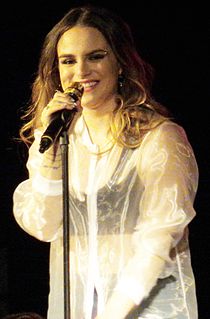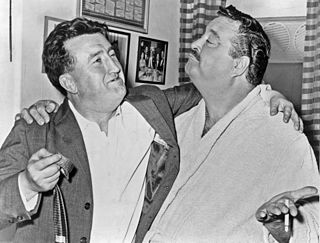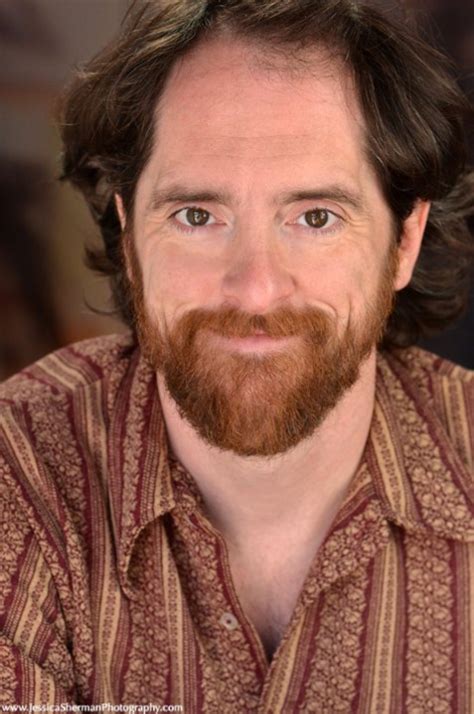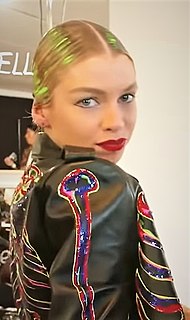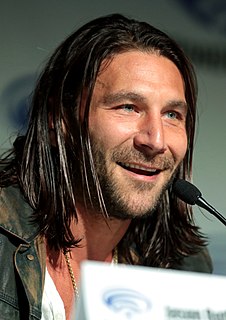A Quote by Michael Eric Dyson
Ironically, there is a history of black/Irish communion here in the states; Irish and African American brothers and sisters have often found common cause in fighting the bigotry both communities faced earlier in the 20th century. However, white skin privilege among the Irish separated them from blacks, who had no such advantage to fall back upon. The solution is to fight bigotry and racism wherever they appear, and to root out the forces of oppression as conscientiously as possible.
Quote Topics
Advantage
African
African American
American
Among
Appear
Back
Back Up
Bigotry
Black
Blacks
Both
Brothers
Brothers And Sisters
Cause
Century
Common
Common Cause
Communion
Communities
Earlier
Faced
Fall
Fall Back
Fight
Fighting
Forces
Found
Had
History
However
Irish
Ironically
Often
Oppression
Out
Possible
Privilege
Racism
Root
Separated
Sisters
Skin
Solution
States
Them
Wherever
White
White Skin
Related Quotes
I'm Irish as hell: Kelly on one side, Shanley on the other. My father had been born on a farm in the Irish Midlands. He and his brothers had been shepherds there, cattle and sheep, back in the early 1920s. I grew up surrounded by brogues and Irish music, but stayed away from the old country till I was over 40. I just couldn't own being Irish.
'A Naval History of Britain' which begins in the 7th century has to explain what it means by Britain. My meaning is simply the British Isles as a whole, but not any particular nation or state or our own day... 'Britain' is not a perfect word for this purpose, but 'Britain and Ireland' would be both cumbersome and misleading, implying an equality of treatment which is not possible. Ireland and the Irish figure often in this book, but Irish naval history, in the sense of the history of Irish fleets, is largely a history of what might have been rather than what actually happened.
The phrase the violent bear it away fascinated the 20th century Irish-American storyteller Flannery O'Connor, who used it as the title of one of her novels. O'Connor's surname connects her to an Irish royal family descended from Conchobor (pronounced Connor), the prehistoric king of Ulster who was foster father to Cuchulainn and husband of the unwilling Derdriu. In the western world, the antiquity of Irish lineages is exceeded only by that of the Jews.
All my family look Irish. They act Irish. My sister even has red hair... it's crazy. I'm the one that doesn't seem Irish. None of the kids in my family, my siblings, speak with an Irish accent... we've never lived there full-time; we weren't born there. We just go there once or twice a year. It's weird. Our parents sound Irish, but we don't.
My father and his brothers and sisters were childhood Irish jig champions in the Bronx. At our family celebrations, they all get out and do the jig. And of course, the younger generation, me and my cousins and my brothers, we have our own Americanized renditions of the Irish jig, which is a bit more like 'Lord of the Dance.'
Those who came to the United States didn't realize they were white until they got here. They were told they were white. They had to learn they were white. An Irish peasant coming from British imperial abuse in Ireland during the potato famine in the 1840s, arrives in the United States. You ask him or her what they are. They say, "I am Irish." No, you're white. "What do you mean, I am white?" And they point me out. "Oh, I see what you mean. This is a strange land."
The majority of people who come to America come for a better life, just like the Italians, the Jews, the Irish, and the Polish did in generations before. A lot of the Irish came here back in the turn of the 19th to the 20th century because there were no opportunities and no options at home for them. There were no jobs and there was extreme poverty. They came here to be able to send money back home.




